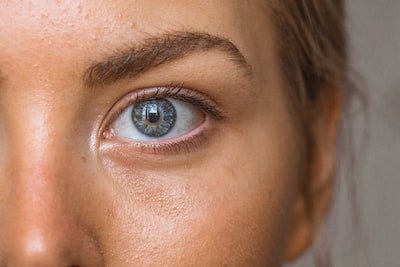Skin Lift
In this edition, resistance training gets some face time, boxing for small spaces and your weekly recommendations.
The Rundown
Skin Lift. We know that exercise benefits our muscles, brain, heart and other organs but does it improve our skin? A new study published in Scientific Reports says yes. Exercise scientists at Ritsumeikan University in Kyoto, Japan found that both aerobic and weight training changed gene expression and improved the underlying health of facial skin cells and tissue but the most significant effects happened when people lifted weights.
For the study, 56 sedentary, middle-aged women either cycled for 30 minutes, twice a week or lifted weights for 30 minutes, twice a week. Before they began their assigned exercise program, the scientists used ultrasound and other measures to assess the elasticity, thickness, and dermal layers of the women’s facial skin. The researchers also took blood, checking it for various substances and added it to isolated facial skin cells in Petri dishes.
They repeated all the tests after 16 weeks of exercise and found that the participants’ facial skin had improved elasticity. The skin’s extracellular matrix, which is the biological foundation that gives skin tissue structure, was also denser and genes that are part of the creation of skin collagen were more active. These are all factors of skin rejuvenation and happened in both groups.
But only the weight training group saw an increase in the thickness of the skin’s dermal layer. The team believes this was due to resistance training increasing the activity of several specialized genes that create proteins that build and strengthen connective tissue. (The team did not assess the appearance of the women’s skin).
According to the study’s lead author, the findings suggest that the skin “is strongly influenced not only be external factors such as UV radiation and dryness but also by internal factors” like gene expression and inflammation, which exercise can change.
Some limitations: The study was small, short and only included middle-aged, Japanese, sedentary females with no control group so more and larger experiments are needed.
Jab, Cross, Shh… Quiet Punch is a smart punching bag that also fits into most doorways. To enhance your boxing workout, on-demand training, workout routines, and technique how-to’s are available on the free Quiet Punch Play app and there is an option to buy a punch tracker to keep count so you don’t have to. While you can hit hard, the creators note that this is not a heavy bag but more like a double-end bag, which is suitable for cardio, speed and timing. The bag and bars weigh a total of five pounds.
Extra Point
Watch
Mark Cavendish: Never Enough. The Tour de France is over but if you’re a cycling fan, Netflix has you covered. Mark Cavendish: Never Enough is a documentary covering the famed sprinter’s early successes, devastating injuries and surprise comeback. Cavendish tells his own story in his to-camera interviews but some of the most interesting insights come from his wife, as she recounts his struggles on the road to greatness. Never Enough is streaming now.
Listen
High Performance. The goal of this podcast is to find out what “non-negotiable” behaviors got people to the top and kept them there. Hosts Jake Humphrey and Damian Hughes interview guests who have excelled in sports, business, art and entertainment.
Read
These Experts Are Begging You to Stop Trying to ‘Speed Up’ Your Workout Recovery. In this piece for Well + Good, Lauren Wingenroth talks to experts about why recovery tools, despite making us feel good in the short term, may also distract from what our bodies really need to recover: “rest, sleep, refueling and hydration.”



